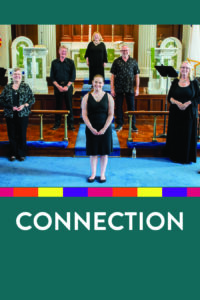Our faith is 2,000 years old. Our thinking is not.
We believe in God’s continuing testament. This is why we are committed to hearing God’s ancient story anew and afresh in our lives and in the world today. We try to remain attentive to God’s creative movement in the world. Religion and science are not mutually exclusive, and your head and heart are both welcomed into our places of worship. We prepare our members and leaders to be engaged in ministry in the present and future church, and we embrace all kinds of communities and new modes of thinking. Why? Because God is still speaking.
No matter who you are or where you are on life’s journey, you are welcome here.
We believe in extravagant welcome. This is why we insist that God’s communion table is open, not closed, and God’s gift and claim in baptism are irrevocable. We advocate justice for all. Our congregations extend hospitality as a sign of God’s inclusive love. We teach that evangelism offering bread to those in search of it is God’s mission. Our perspective is global, not provincial. We work with “not against”people of other faiths. Why? Because God is still speaking.
Never place a period where God has placed a comma.
We believe the church’s mission is to change lives individually, systemically and globally. We work to make transformation possible, but trust in God’s grace. This is why we insist that churches must be places of vitality in worship, learning and advocacy. We are committed to working for justice, and we believe that lives are changed through global experiences and friendships. Why? Because God is still speaking.
The United Church of Christ acknowledges as its sole head, Jesus Christ, Son of God and Savior. It acknowledges as kindred in Christ all who share in this confession. It looks to the Word of God in the scriptures, and to the presence and power of the Holy Spirit, to prosper its creative and redemptive work in the world. It claims as its own the faith of the historic Church expressed in the ancient creeds and reclaimed in the basic insights of the Protestant Reformers. It affirms the responsibility of the Church in each generation to make this faith its own in reality of worship, in honesty of thought and expression, and in purity of heart before God. In accordance with the teaching of our Lord and the practice prevailing among evangelical Christians, it recognizes two sacraments: Baptism and the Lord’s Supper or Holy Communion.
-From the Preamble to the Constitution of the United Church of Christ
Learn from our members why they choose ERUCC.
CLICK HERE to hear from Jeff and Starr Schaeberle
CLICK HERE to hear from Colleen Baldree






